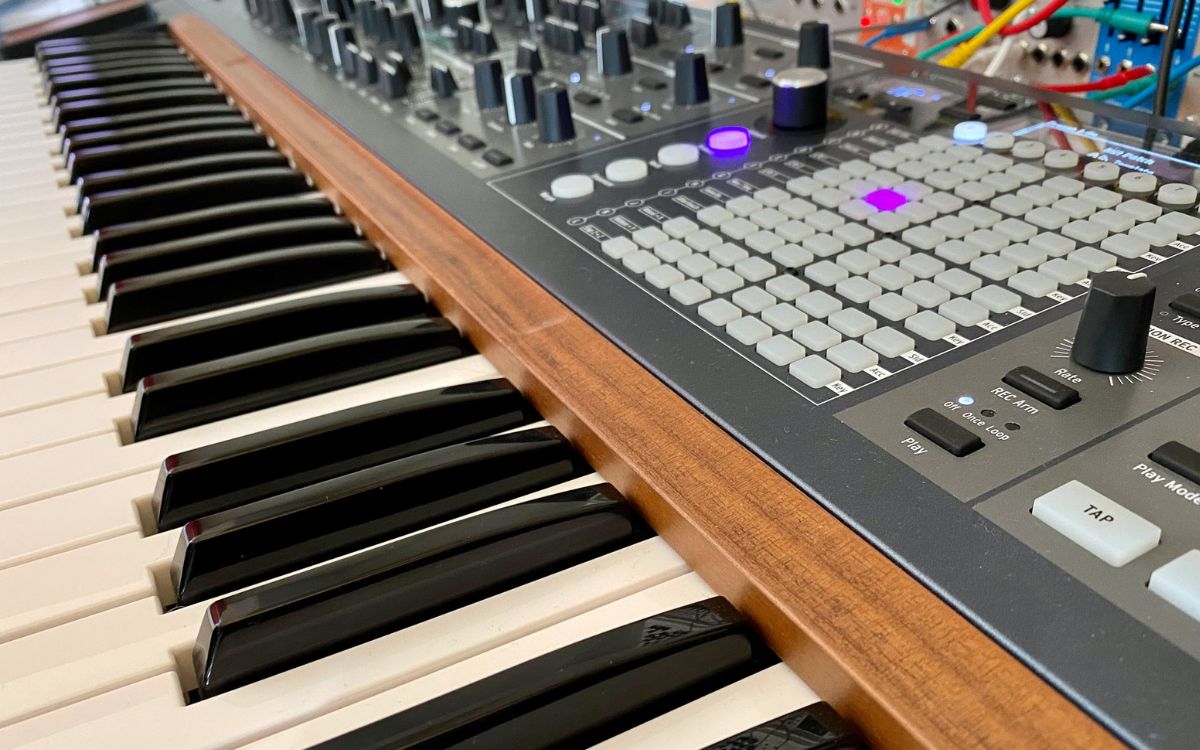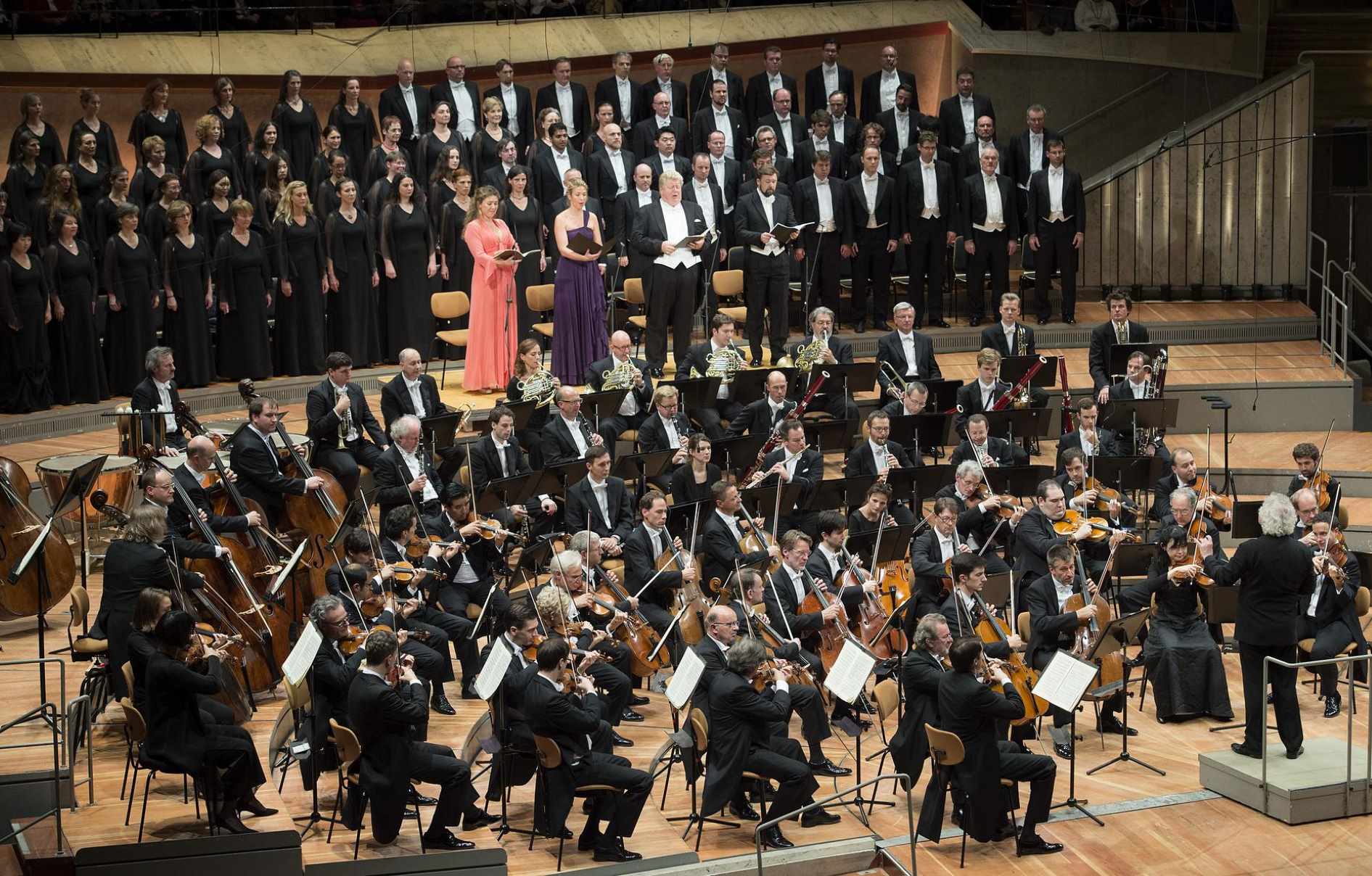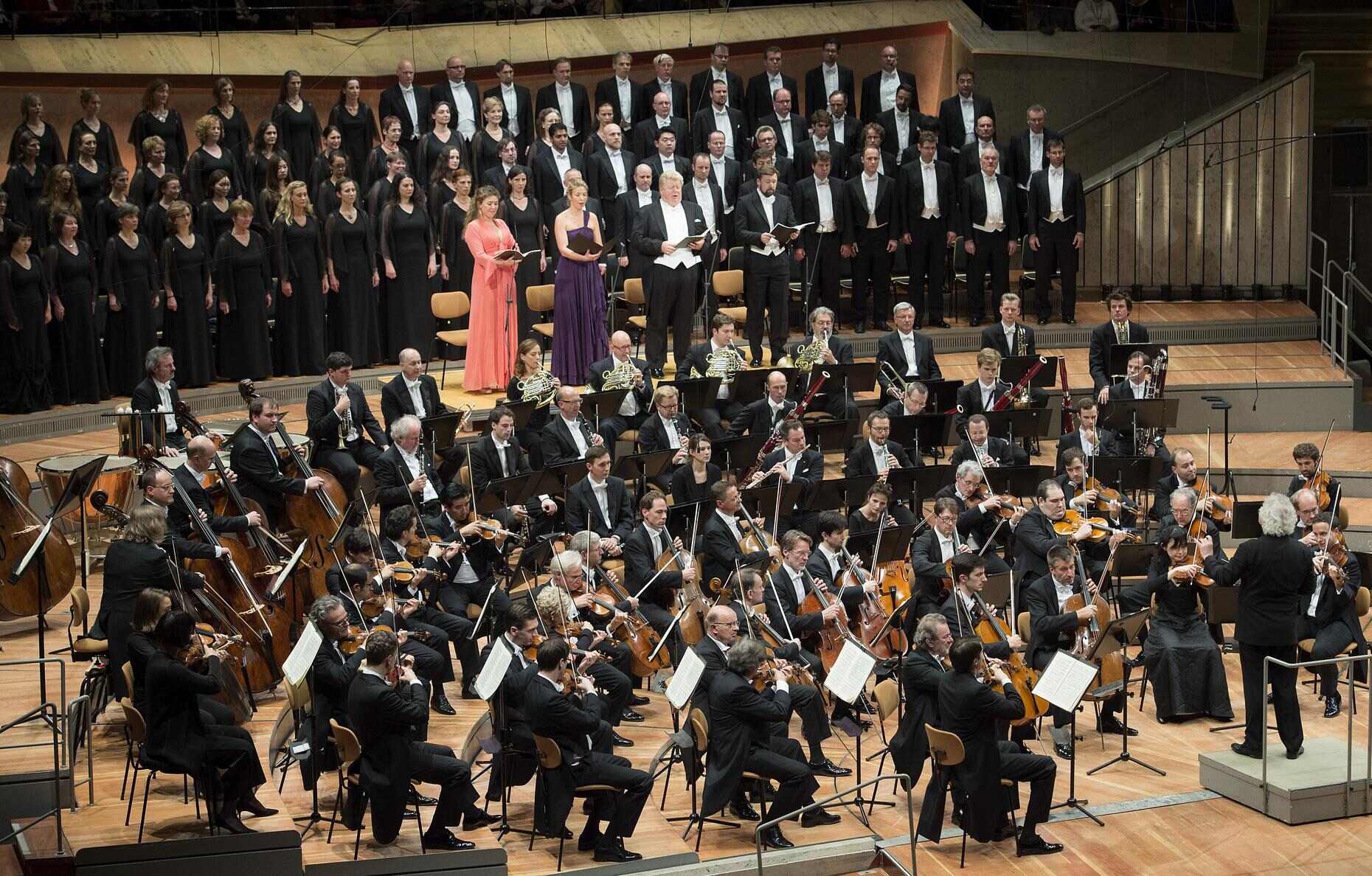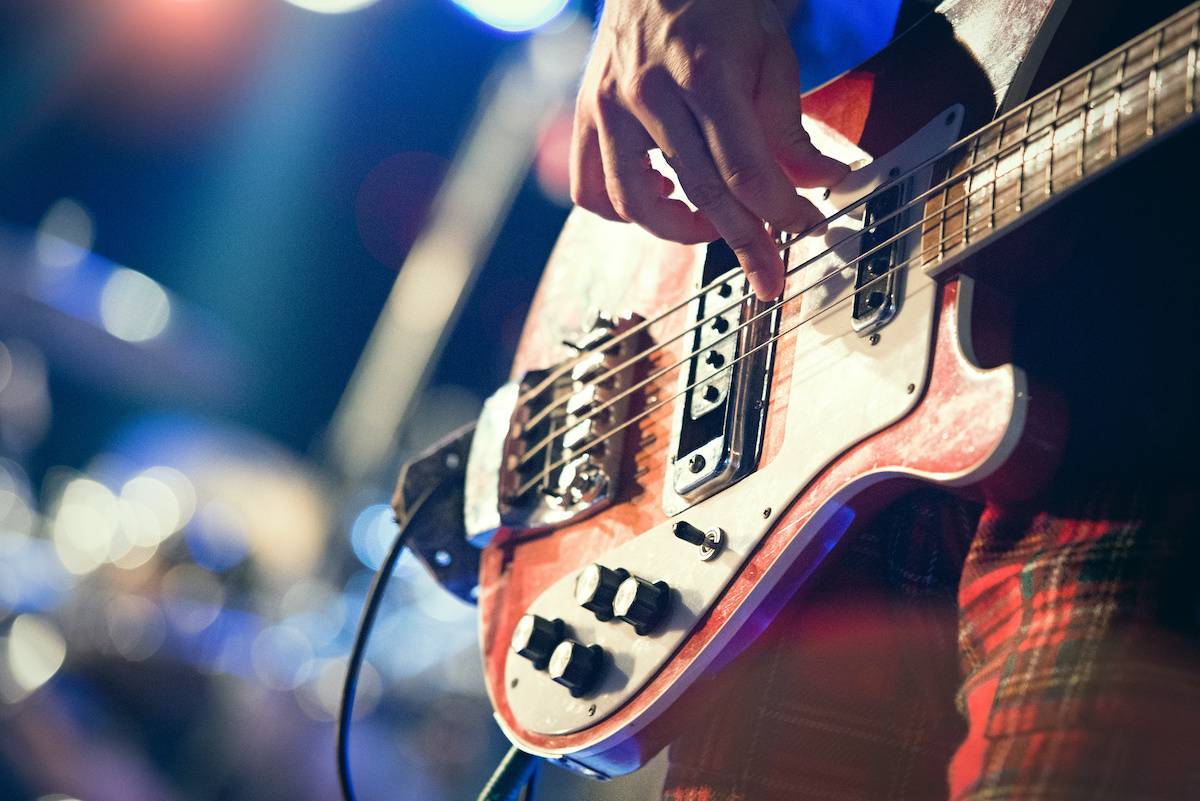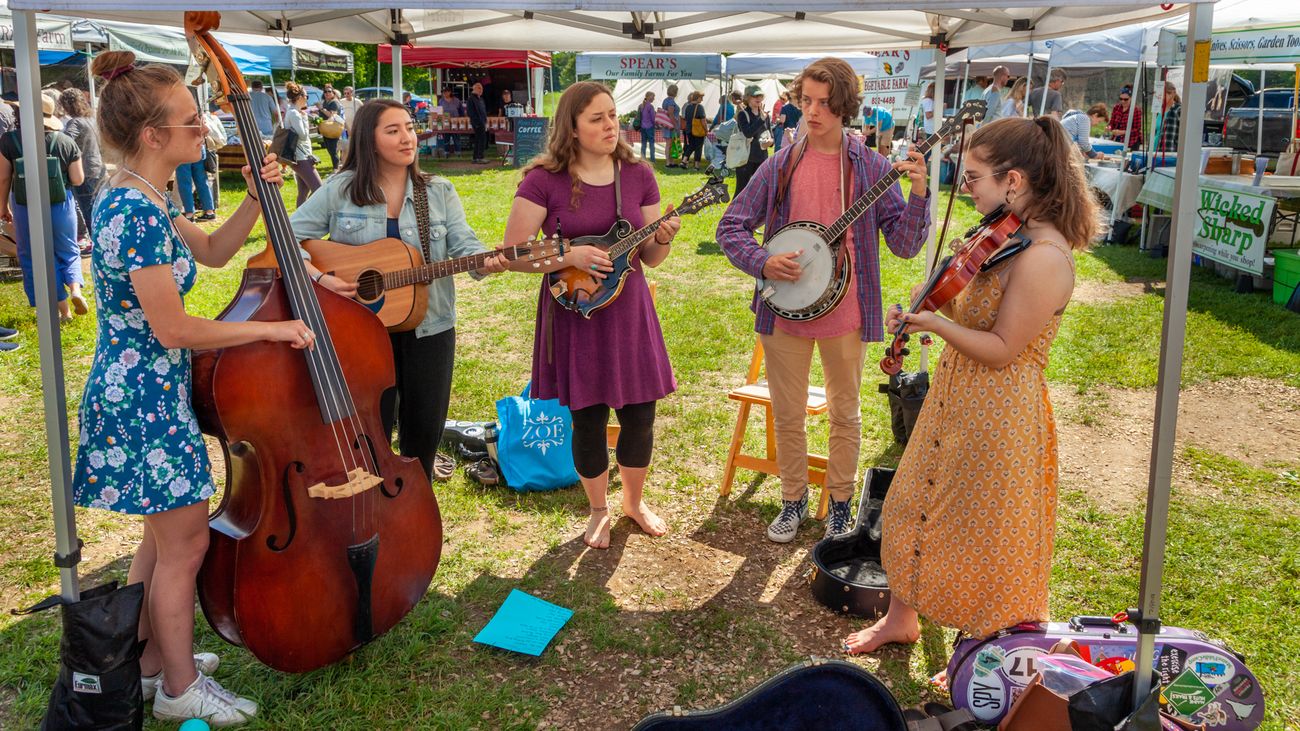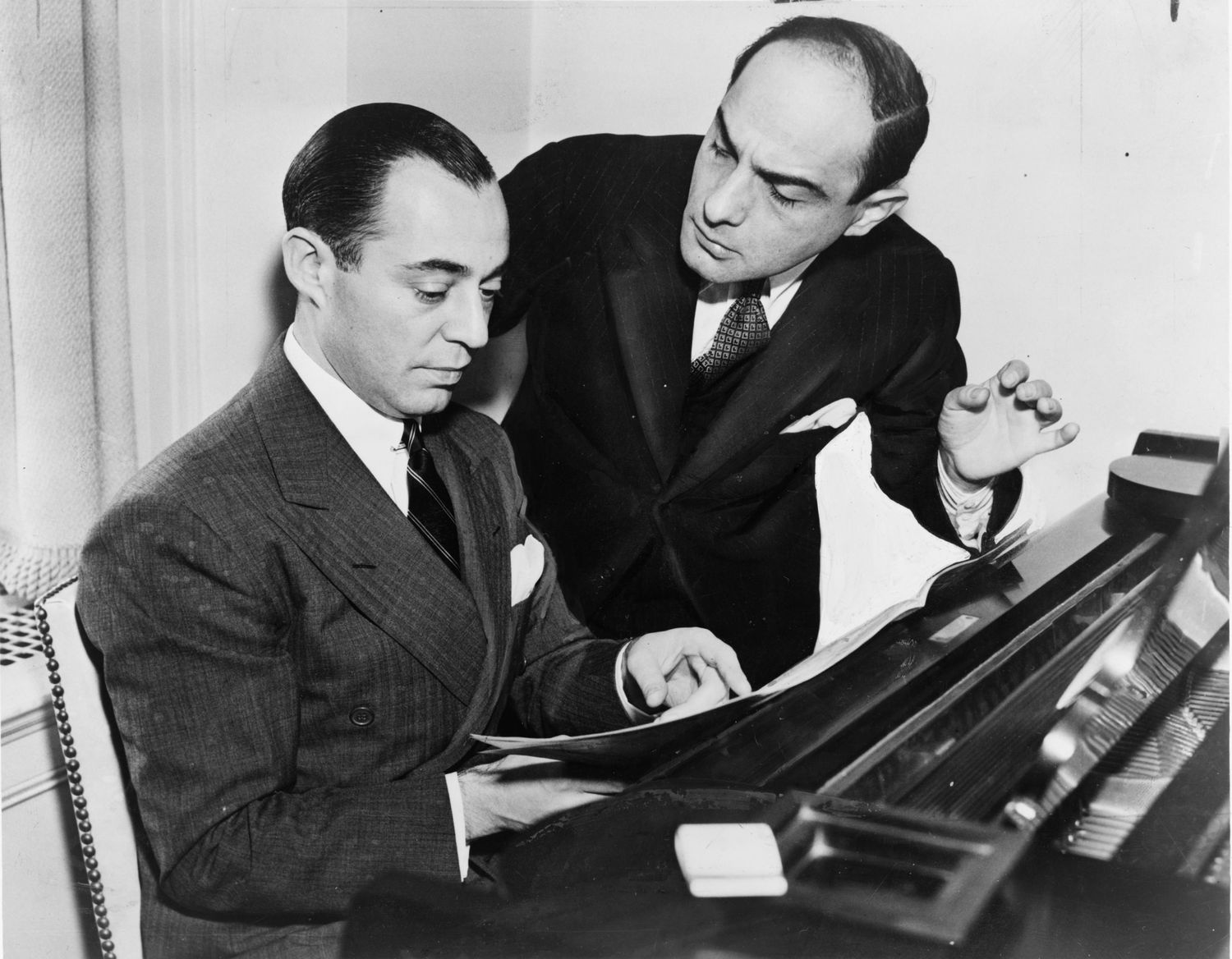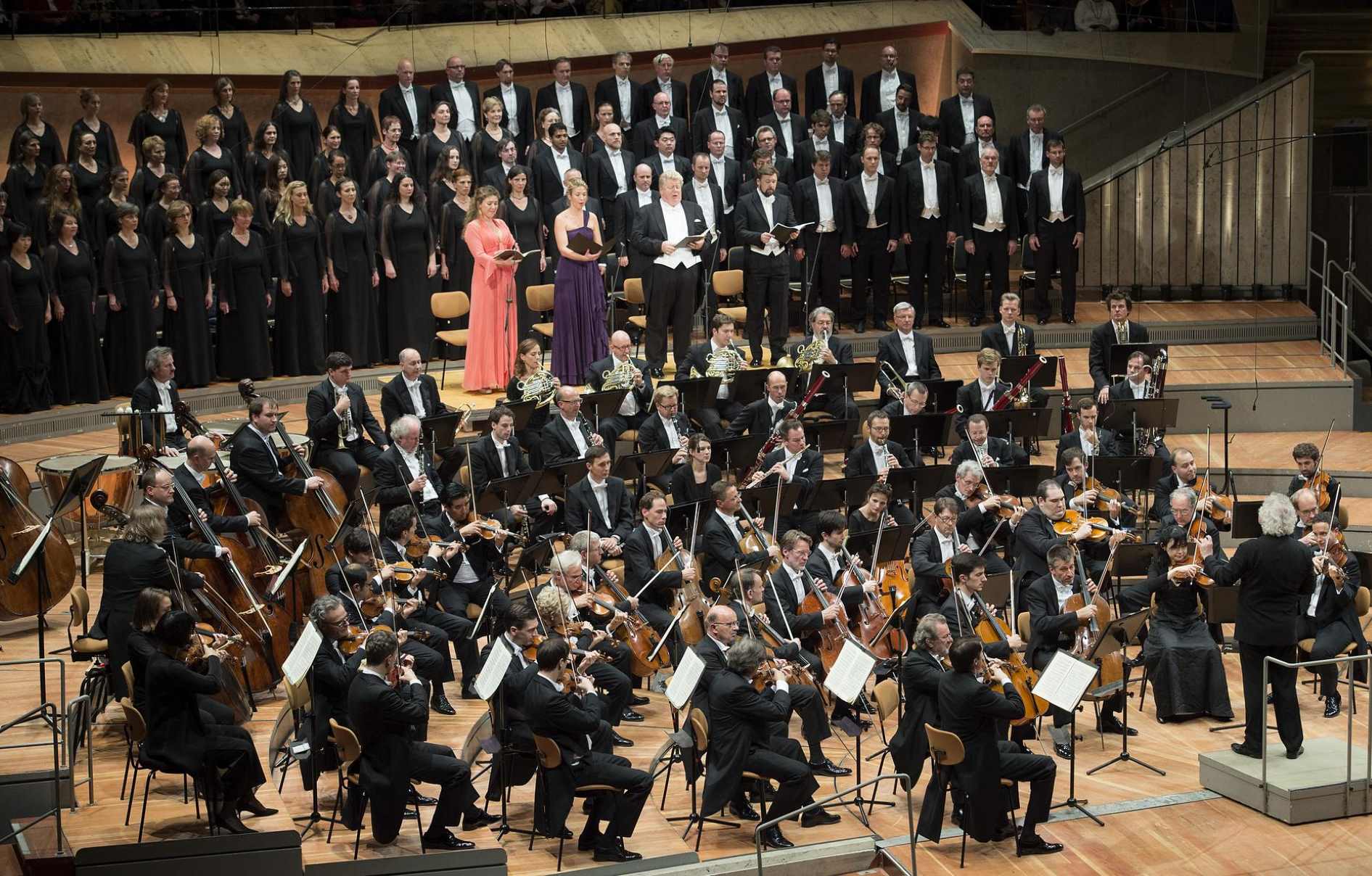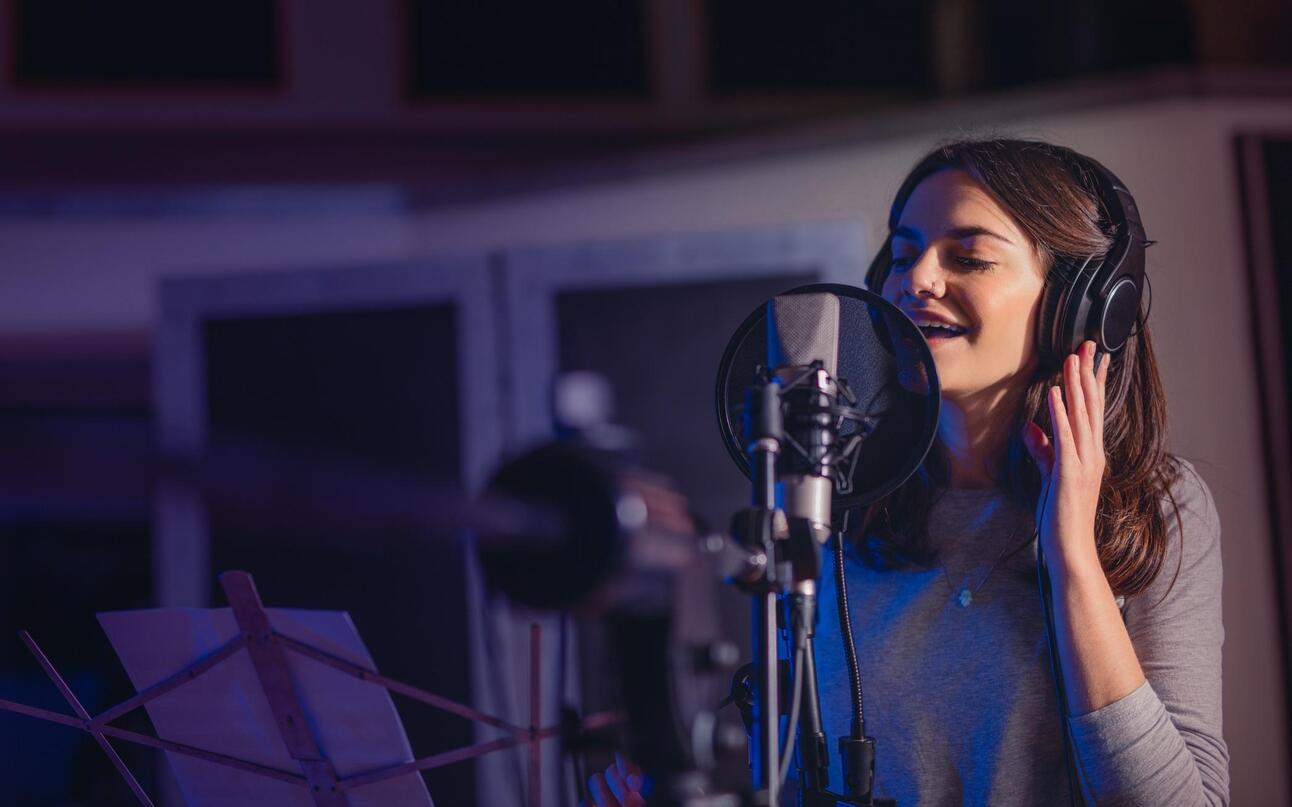Home>Production & Technology>Producer>What Is The Difference Between A DJ And A Music Producer
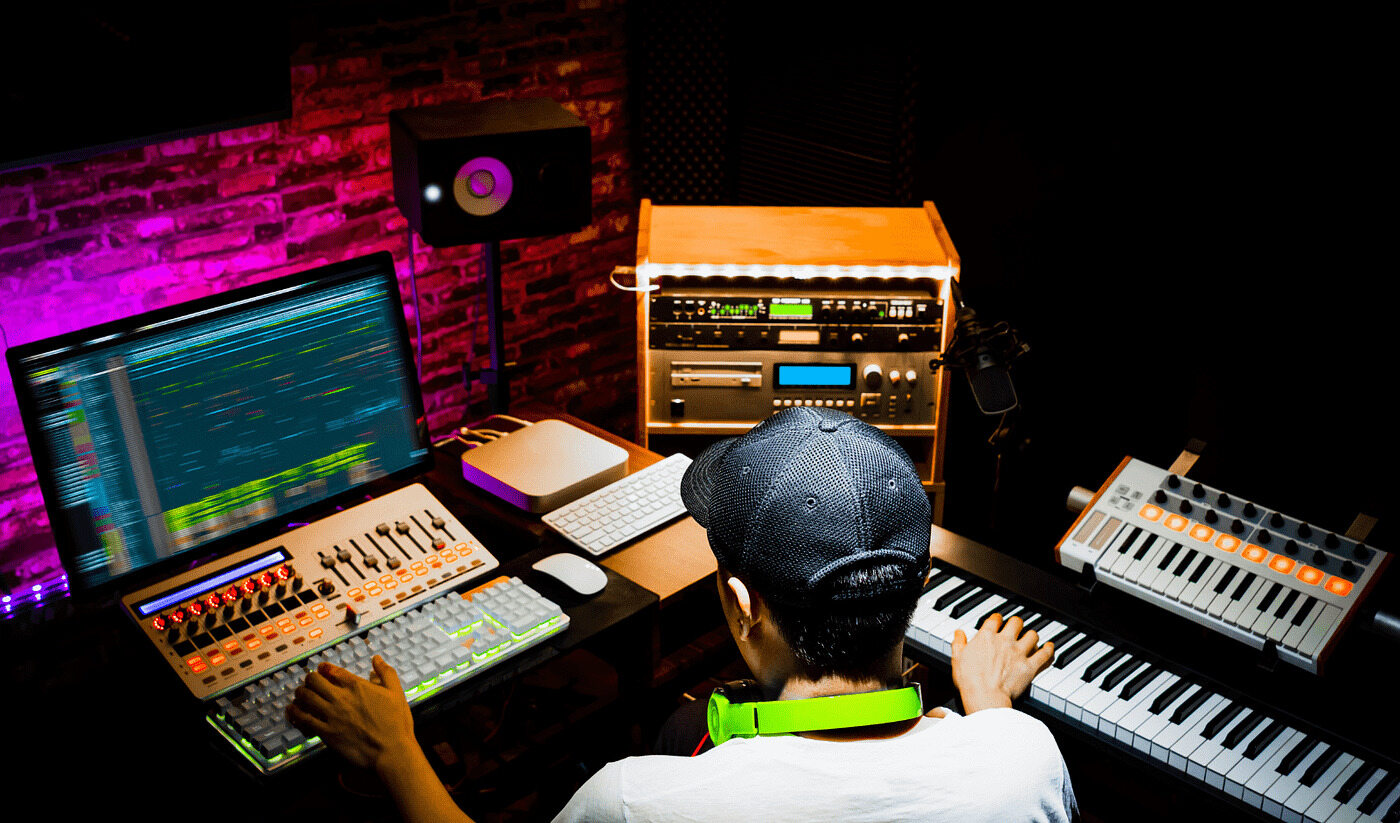

Producer
What Is The Difference Between A DJ And A Music Producer
Published: March 6, 2024
Discover the key disparities between a DJ and a music producer. Uncover the distinct roles and responsibilities that set a producer apart. Gain insights into the world of music production.
(Many of the links in this article redirect to a specific reviewed product. Your purchase of these products through affiliate links helps to generate commission for AudioLover.com, at no extra cost. Learn more)
Table of Contents
Introduction
In the world of music, the roles of a DJ and a music producer are often misunderstood or even interchangeably used. While both are essential in shaping the music industry, they serve distinct functions that contribute to the creation, production, and performance of music. Understanding the key differences between a DJ and a music producer is crucial for anyone looking to pursue a career in the music industry or for those who simply want to appreciate the art form on a deeper level.
The DJ and the music producer each play a unique and vital role in the music-making process. A DJ is primarily responsible for selecting and playing pre-recorded music for an audience, often in a live setting such as a club, festival, or event. Their expertise lies in curating a seamless and engaging musical experience, blending tracks, and reading the crowd to keep the energy high and the dance floor packed. On the other hand, a music producer is the mastermind behind the scenes, involved in the creation, recording, and post-production of music. They work closely with artists to develop and refine musical ideas, arrange compositions, and oversee the technical aspects of music production.
As we delve deeper into the distinctions between a DJ and a music producer, we will explore their unique skill sets, roles and responsibilities, creative processes, equipment and software preferences, performance styles, and career opportunities. By gaining a comprehensive understanding of these differences, aspiring musicians, industry professionals, and music enthusiasts can better appreciate the multifaceted nature of the music industry and the diverse talents that contribute to its vibrancy and creativity.
Skill Set
The skill set required for a DJ and a music producer encompasses a diverse range of talents and proficiencies, each tailored to their respective roles in the music industry.
DJ Skill Set
- Musical Knowledge: A DJ must possess an in-depth understanding of various music genres, including their history, evolution, and distinct characteristics. This knowledge enables them to create seamless transitions between tracks and curate a captivating musical journey for their audience.
- Beatmatching and Mixing: The ability to seamlessly blend tracks, synchronize beats, and maintain a consistent tempo is fundamental to a DJ's craft. This skill ensures a smooth and uninterrupted flow of music, keeping the energy high on the dance floor.
- Reading the Crowd: A skilled DJ has the intuition to read the crowd, gauge their energy, and adjust the music selection accordingly. This involves understanding the audience's preferences and adapting the playlist to keep them engaged and entertained.
- Technical Proficiency: Familiarity with DJ equipment, such as turntables, mixers, and controllers, is essential for executing flawless performances. Additionally, knowledge of sound systems and audio engineering enhances a DJ's ability to deliver high-quality sound experiences.
Music Producer Skill Set
- Music Theory and Composition: A strong foundation in music theory and composition is crucial for a music producer. This includes understanding harmony, melody, rhythm, and song structure, enabling them to craft compelling musical arrangements and compositions.
- Sound Design and Audio Engineering: Proficiency in sound design, synthesis, and audio engineering allows a music producer to manipulate and sculpt sound to achieve desired sonic textures and atmospheres. This skill set is vital for creating unique and innovative musical productions.
- Collaboration and Communication: Effective communication and collaboration skills are essential for music producers, as they often work closely with artists, songwriters, and musicians to bring creative visions to life. The ability to translate ideas into tangible musical expressions is a hallmark of a skilled producer.
- Technical Proficiency with DAWs: Music producers rely on digital audio workstations (DAWs) to record, arrange, and mix music. Proficiency in using industry-standard software such as Ableton Live, Pro Tools, or Logic Pro is indispensable for realizing their creative vision.
Both DJs and music producers require a deep passion for music, a keen ear for detail, and the ability to adapt to evolving trends and technologies within the music industry. While their skill sets may differ in focus, both roles demand dedication, creativity, and a relentless pursuit of musical excellence.
Role and Responsibilities
DJ Role and Responsibilities
A DJ's role extends beyond simply playing music; they are the architects of the atmosphere, setting the tone for a memorable experience. Their primary responsibility is to curate a seamless and dynamic musical journey for their audience. This involves selecting tracks that resonate with the crowd, creating a cohesive flow of energy, and maintaining an electrifying ambiance throughout the performance. DJs often adapt their playlist in real-time, responding to the energy of the crowd and ensuring an immersive and engaging experience for the audience. Additionally, they are responsible for mastering the technical aspects of DJ equipment, ensuring flawless execution of transitions, beatmatching, and sound manipulation. Their ability to read the crowd and make intuitive musical decisions is pivotal in elevating the overall experience and leaving a lasting impression on the audience.
Music Producer Role and Responsibilities
Music producers are the visionaries behind the scenes, involved in every stage of the music production process. Their responsibilities encompass a wide array of tasks, including collaborating with artists to conceptualize and refine musical ideas, arranging compositions, overseeing recording sessions, and meticulously shaping the sonic landscape of a song. They play a pivotal role in guiding the creative direction of a project, offering valuable insights and technical expertise to enhance the quality and impact of the music. Music producers are also responsible for sound design, audio engineering, and post-production, ensuring that the final product meets the highest standards of sonic excellence. Their ability to translate artistic visions into tangible musical expressions, while managing the technical intricacies of the production process, underscores the depth of their responsibilities and the critical role they play in shaping the final musical output.
In summary, while a DJ's role revolves around creating an immersive and captivating live experience through music selection and performance, a music producer's responsibilities span the entire music production process, from conception to the final sonic masterpiece. Both roles are integral to the music industry, each contributing unique talents and expertise that enrich the diverse tapestry of musical expression.
Creative Process
The creative process for a DJ and a music producer is a deeply immersive and intricate journey, each characterized by distinct approaches and methodologies tailored to their respective roles in the music industry.
DJ Creative Process
For a DJ, the creative process unfolds in real-time, within the pulsating energy of a live performance. It begins with meticulous track selection, a process that draws upon their extensive musical knowledge and intuitive understanding of the audience. By curating a diverse and cohesive playlist, a DJ sets the stage for a captivating musical odyssey, carefully weaving together different genres, tempos, and moods to craft a seamless sonic narrative. The art of reading the crowd is central to the DJ's creative process, as they gauge the audience's response, adapt their playlist on the fly, and sculpt the musical atmosphere to elicit an electrifying response. The seamless blending of tracks, the strategic placement of peaks and lulls, and the ability to build and release tension through music all contribute to the DJ's creative expression and their ability to craft an unforgettable experience for their audience.
Music Producer Creative Process
In contrast, the creative process for a music producer unfolds within the intimate confines of the studio, where artistic visions are meticulously sculpted into sonic realities. It begins with ideation and collaboration, as the producer works closely with artists to conceptualize musical themes, explore sonic palettes, and refine creative concepts. Drawing upon their deep understanding of music theory and composition, producers craft intricate arrangements, layering melodies, harmonies, and rhythms to construct a rich and evocative musical tapestry. The process of sound design and audio engineering is a hallmark of the producer's creative journey, as they manipulate and shape sound, sculpting textures, and atmospheres to evoke specific emotions and convey artistic narratives. The meticulous attention to detail, the relentless pursuit of sonic perfection, and the ability to translate abstract ideas into tangible musical expressions epitomize the producer's creative process, culminating in the realization of a compelling and immersive sonic landscape.
In essence, the creative processes of a DJ and a music producer are both driven by a profound passion for music, an unwavering commitment to artistic expression, and a relentless pursuit of excellence. While their methodologies and environments may differ, both roles share a common thread of creativity, innovation, and a deep reverence for the transformative power of music.
Equipment and Software
The distinction between a DJ and a music producer is not only evident in their roles and creative processes but also in the equipment and software they rely on to bring their artistic visions to life. Understanding the tools of their trade provides valuable insight into the technical nuances that shape their respective crafts.
DJ Equipment and Software
For a DJ, the fundamental tools of their trade include turntables, DJ controllers, mixers, and headphones. Turntables, whether traditional vinyl or modern digital, serve as the canvas upon which a DJ blends and manipulates tracks, employing techniques such as scratching and beat juggling to craft dynamic and innovative performances. DJ controllers, equipped with jog wheels, performance pads, and faders, offer a tactile interface for manipulating music and executing seamless transitions. Mixers play a pivotal role in blending multiple audio sources, adjusting levels, and applying effects to enhance the sonic landscape. Additionally, high-quality headphones are indispensable for monitoring and cueing tracks, enabling precise timing and synchronization during performances.
In the realm of software, digital DJ platforms such as Serato DJ, Traktor Pro, and rekordbox provide a wealth of tools for organizing music libraries, executing live performances, and integrating hardware controllers seamlessly. These software solutions offer features such as waveform visualization, beat syncing, and effects processing, empowering DJs to craft immersive and electrifying musical experiences in real time.
Music Producer Equipment and Software
Conversely, the music producer's toolkit is centered around the studio environment, comprising essential hardware and software for recording, editing, and mixing music. Key hardware includes studio monitors, audio interfaces, MIDI controllers, synthesizers, and microphones. Studio monitors, designed for accurate and transparent sound reproduction, enable producers to critically evaluate and refine their mixes with precision. Audio interfaces serve as the bridge between analog and digital realms, facilitating high-fidelity recording and playback. MIDI controllers and synthesizers offer boundless creative potential, allowing producers to craft original sounds and musical motifs to enrich their compositions. Additionally, microphones are essential for capturing pristine vocal performances and acoustic instruments.
In the realm of software, digital audio workstations (DAWs) such as Ableton Live, Logic Pro, and FL Studio serve as the epicenter of a producer's creative workflow. These powerful platforms provide a comprehensive suite of tools for recording, arranging, mixing, and mastering music, empowering producers to sculpt intricate sonic landscapes and bring their artistic visions to fruition with unparalleled depth and clarity.
In essence, the equipment and software utilized by DJs and music producers reflect the unique demands of their respective roles, catering to the real-time dynamism of live performances for DJs and the meticulous intricacies of studio-based music production for producers. Each set of tools embodies the essence of their craft, enabling them to push the boundaries of musical expression and captivate audiences with their distinct artistic prowess.
Performance Style
The performance style of a DJ and a music producer embodies the essence of their artistic expression, each characterized by distinct approaches and techniques that captivate audiences and elevate the live music experience.
DJ Performance Style
A DJ's performance style is a dynamic fusion of musical selection, technical prowess, and audience engagement. At the core of their style lies the ability to seamlessly blend tracks, craft smooth transitions, and maintain an infectious energy that keeps the crowd immersed in the sonic journey. DJs often employ a diverse range of mixing techniques, from beatmatching and crossfading to creative mashups and live remixing, creating a fluid and electrifying musical narrative. Their intuitive understanding of the crowd's energy enables them to build tension, release euphoria, and orchestrate moments of collective euphoria through carefully curated sonic peaks and valleys. The art of reading the crowd is pivotal in shaping their performance style, allowing them to adapt their playlist in real-time, anticipate audience reactions, and create an immersive and unforgettable musical experience.
Music Producer Performance Style
For a music producer, the performance style transcends the traditional notion of live stage presence, manifesting in the meticulous crafting of sonic landscapes and the evocative manipulation of sound. Their performance unfolds within the intimate confines of the studio, where they meticulously sculpt and shape musical compositions, layering textures, harmonies, and rhythms to convey profound emotional narratives. The producer's performance style is characterized by a relentless pursuit of sonic perfection, an unwavering commitment to innovation, and a profound reverence for the transformative power of music. Every decision, from sound design and arrangement to mixing and mastering, is a deliberate and expressive act, driven by a deep passion for artistic exploration and a dedication to pushing the boundaries of musical creativity. The producer's performance style resonates within the very fabric of the music they create, weaving together intricate sonic tapestries that evoke emotions, provoke thoughts, and transport listeners to immersive auditory realms.
In essence, the performance styles of DJs and music producers represent the convergence of technical proficiency, artistic vision, and a deep connection to the emotional and communal power of music. Each style embodies a unique form of expression, pushing the boundaries of creativity and leaving an indelible imprint on the fabric of the music industry.
Career Opportunities
The music industry offers a diverse array of career opportunities for individuals passionate about shaping the sonic landscape and engaging audiences on a profound level. Both DJs and music producers play integral roles in this multifaceted industry, each presenting unique pathways for career development and artistic fulfillment.
DJ Career Opportunities
For aspiring DJs, the world of live performance beckons with a multitude of opportunities to showcase their musical prowess and captivate audiences. From local clubs and bars to international festivals and events, DJs have the chance to carve out a dynamic career marked by electrifying performances and a deep connection to their audience. Additionally, the rise of online streaming platforms and digital music channels has opened new avenues for DJs to reach global audiences, expanding their reach and influence in the ever-evolving landscape of electronic music culture.
Music Producer Career Opportunities
Music producers are presented with a rich tapestry of career opportunities, spanning the realms of music production, sound design, and audio engineering. Whether working with established record labels, independent artists, or film and media production companies, music producers have the opportunity to shape the sonic identity of diverse projects, contributing their creative vision and technical expertise to elevate the quality of music across various genres. Furthermore, the proliferation of digital platforms and streaming services has empowered producers to explore new frontiers in music creation, from crafting original sound libraries and sample packs to scoring for visual media and immersive audio experiences.
Collaborative Opportunities
Both DJs and music producers have the opportunity to collaborate with artists, songwriters, and fellow industry professionals, fostering a vibrant ecosystem of creative synergy and artistic exploration. Collaborative projects, remix opportunities, and live performance collaborations offer avenues for mutual growth, exposure to new audiences, and the fusion of diverse artistic perspectives.
Entrepreneurial Ventures
The music industry also presents entrepreneurial opportunities for DJs and music producers to establish their own record labels, production studios, event management companies, and music-related businesses. This entrepreneurial spirit allows individuals to shape their careers on their terms, cultivating unique artistic identities and contributing to the evolution of the industry.
In essence, the career opportunities for DJs and music producers are as diverse as the music they create and curate. Whether igniting dance floors with pulsating beats or shaping the sonic landscapes of tomorrow, individuals in these roles have the chance to leave an indelible mark on the fabric of music culture and contribute to the ever-evolving tapestry of artistic expression.
Conclusion
In conclusion, the distinction between a DJ and a music producer extends far beyond their titles, encompassing a rich tapestry of skills, responsibilities, creative processes, and career opportunities that collectively shape the vibrant landscape of the music industry. While a DJ's artistry thrives in the pulsating energy of live performances, characterized by seamless track blending, crowd engagement, and dynamic sonic narratives, a music producer's creative journey unfolds within the intimate confines of the studio, where they meticulously craft and sculpt sonic landscapes, imbuing their compositions with emotional depth and artistic innovation.
The skill sets of DJs and music producers reflect a deep passion for music, technical proficiency, and a relentless pursuit of excellence. From beatmatching and mixing to sound design and audio engineering, each role demands a unique set of talents tailored to their distinct contributions to the music-making process. DJs harness their musical knowledge and crowd-reading abilities to curate immersive live experiences, while music producers leverage their expertise in music theory, composition, and studio technologies to bring artistic visions to life with unparalleled depth and clarity.
Furthermore, the career opportunities for DJs and music producers are as diverse as the music they create and curate. From live performances at local venues to international festivals, DJs have the chance to captivate audiences with their sonic prowess, while music producers shape the sonic identity of diverse projects, spanning music production, sound design, and collaborative ventures across various media platforms. The entrepreneurial spirit within the music industry also empowers individuals to establish their own creative ventures, contributing to the evolution of the industry and shaping their careers on their terms.
In essence, the distinctions between a DJ and a music producer highlight the multifaceted nature of the music industry, celebrating the diverse talents, creative expressions, and collaborative synergies that converge to shape the sonic landscapes of tomorrow. Both roles, while distinct in their focus and methodologies, share a common thread of unwavering dedication to artistic expression, a profound reverence for the transformative power of music, and a relentless pursuit of pushing the boundaries of creativity. As the music industry continues to evolve, the unique contributions of DJs and music producers will remain integral to the ever-changing tapestry of musical expression, enriching the lives of audiences and artists alike with their boundless creativity and unwavering passion for the art form.

